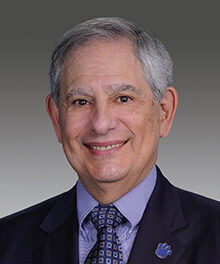What Does Fair Market Value Mean in Healthcare?
By David Glusman, Partner, Advisory Services

In most of the business world, fair market value (FMV) is an established term indicating what value a willing buyer and a willing seller in a hypothetical transaction would arrive at for the transaction, with both being knowledgeable about all material aspects of the transaction and neither being compelled to buy or sell. Much of the background of FMV rests on Internal Revenue Service Ruling 59-60, dating to 1959, and a large number of court cases and professional literature. This is a starting point for FMV in healthcare, but there is an entire additional consideration if the buyer and seller (either) could be, post-transaction, in a position to make or receive patient referrals for designated health services.
The five most important federal fraud and abuse laws that apply to physicians are the False Claims Act (FCA), the Anti-Kickback Statute (AKS), the Physician Self-Referral Law (Stark law), the Exclusion Authorities, and the Civil Monetary Penalties Law (CMPL). Government agencies, including the Department of Justice, the Department of Health & Human Services Office of Inspector General (OIG), and the Centers for Medicare & Medicaid Services (CMS), are charged with enforcing these laws (Department of HHS – A Roadmap for New Physicians). It is crucial to understand these laws not only because following them is the right thing to do, but also because violating them could result in criminal penalties, civil fines, exclusion from the federal healthcare programs, or loss of a provider’s medical license.
Filing false claims may result in fines of up to three times the programs’ loss plus $11,000 per claim filed. Under the civil FCA, each instance of an item or a service billed to Medicare or Medicaid counts as a claim, so fines can add up quickly. The fact that a claim results from a kickback or is made in violation of the Stark law also may render it false or fraudulent, creating liability under the civil FCA as well as the AKS or Stark law.
Anti-Kickback Statute [42 U.S.C. § 1320a-7b(b)] – The AKS is a criminal law that prohibits the knowing and willful payment of “remuneration” to induce or reward patient referrals or the generation of business involving any item or service payable by the federal healthcare programs (e.g., drugs, supplies, or healthcare services for Medicare or Medicaid patients). Remuneration includes anything of value and can take many forms besides cash, such as free rent, expensive hotel stays and meals, and excessive compensation for medical directorships or consultancies.
Physician Self-Referral Law [42 U.S.C. § 1395nn] – The Physician Self-Referral Law, commonly referred to as the Stark law, prohibits physicians from referring patients to receive “designated health services” payable by Medicare or Medicaid from entities with which the physician or an immediate family member has a financial relationship, unless an exception applies. Financial relationships include both ownership/investment interests and compensation arrangements. For example, if you invest in an imaging center, the Stark law requires the resulting financial relationship to fit within an exception, or you may not refer patients to the facility and the entity may not bill for the referred imaging services.
“Designated health services” (DHS) are:
- Clinical laboratory services;
- Physical therapy, occupational therapy, and outpatient speech-language pathology services;
- Radiology and certain other imaging services;
- Radiation therapy services and supplies;
- DME and supplies;
- Parenteral and enteral nutrients, equipment, and supplies;
- Prosthetics, orthotics, and prosthetic devices and supplies;
- Home health services;
- Outpatient prescription drugs; and
- Inpatient and outpatient hospital services.
In practice, the need is to make sure that any payment between entities where DHS are involved is clearly the same as it would be between contracting parties where there is no opportunity for referrals.
The second term in healthcare FMV is “commercially reasonable” – generally understood to mean that the parties would enter into the transaction notwithstanding any referral or related business issue. “An arrangement will be considered ’commercially reasonable’ in the absence of referrals if the arrangement would make commercial sense if entered into by a reasonable entity of similar type and size and a reasonable physician (or family member or group practice) of similar scope and specialty, even if there were no potential DHS referrals” (69 Federal Register (March 26, 2004), Page 16093). This does not often become a material consideration if traditional FMV is met without consideration of referrals, but could be an issue, by way of example, if the buyer were to purchase a facility or business with the intent to close it immediately to avoid competition for the buyer’s DHS business(s).
In summary, whenever a commercial transaction (the exchange of money or anything of material value) is entered into or contemplated where DHS could be an issue, a clear understanding of the FMV and commercially reasonable standards is required, and, often, an outside third party opinion on adherence to FMV is in the best interests of the parties.







